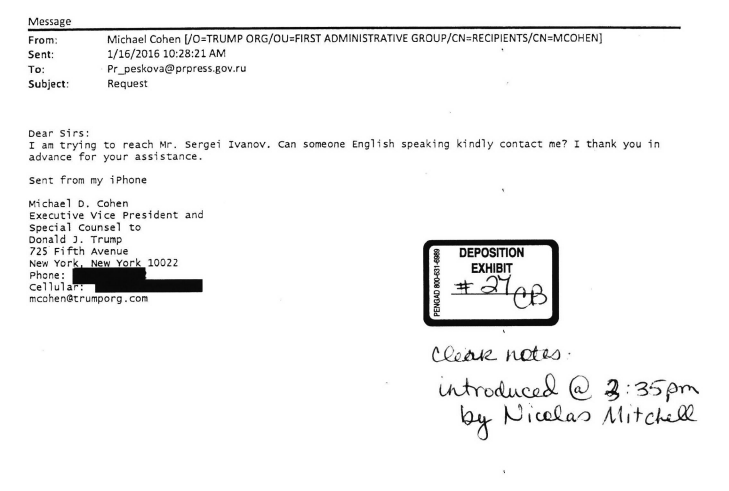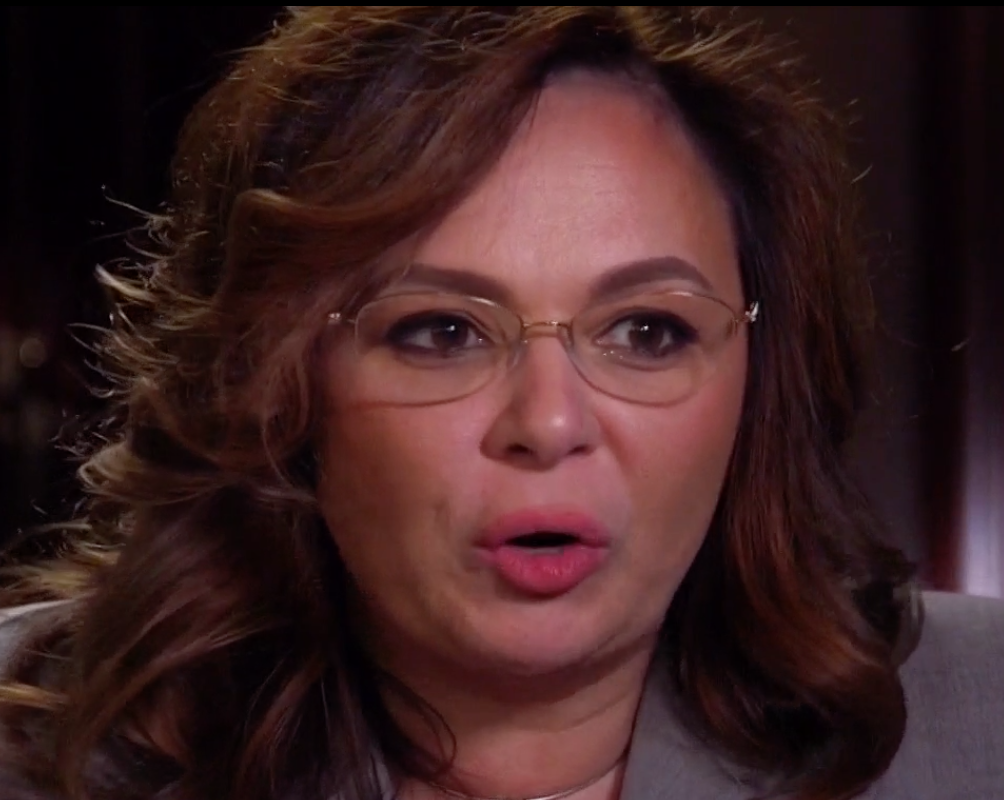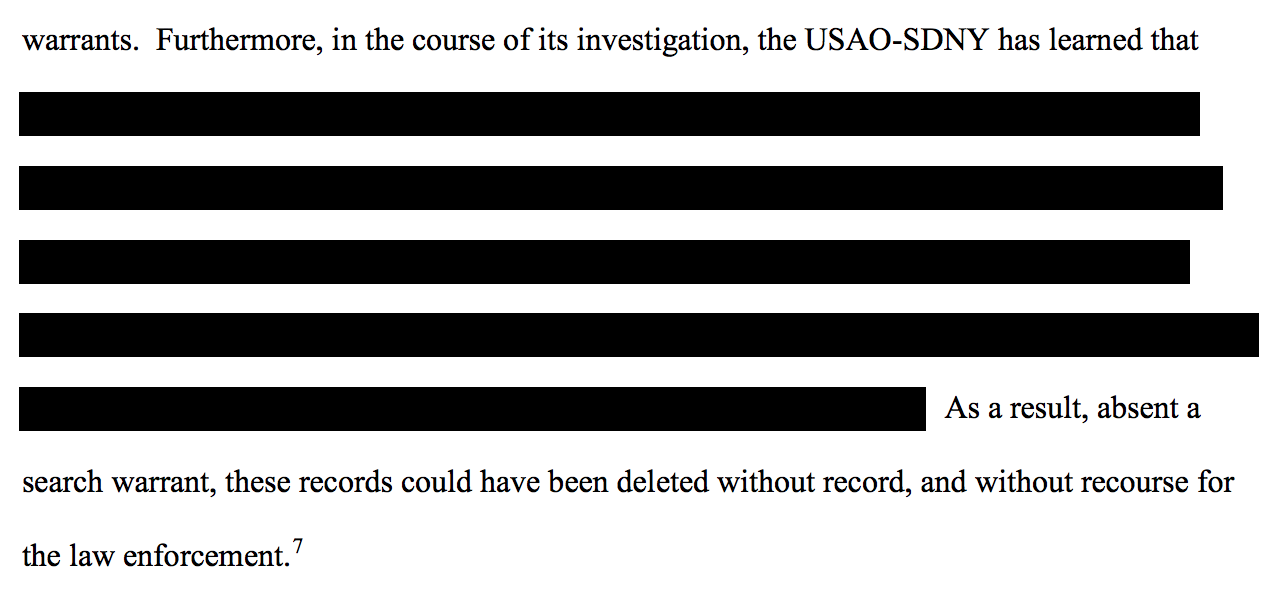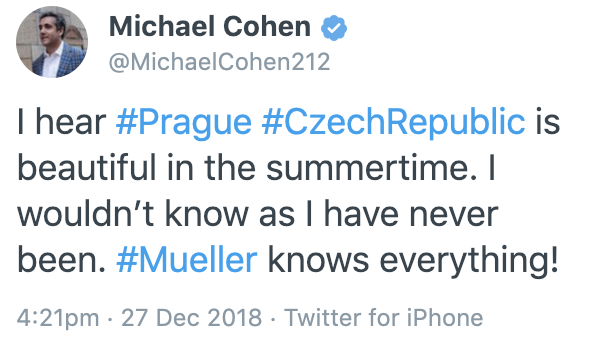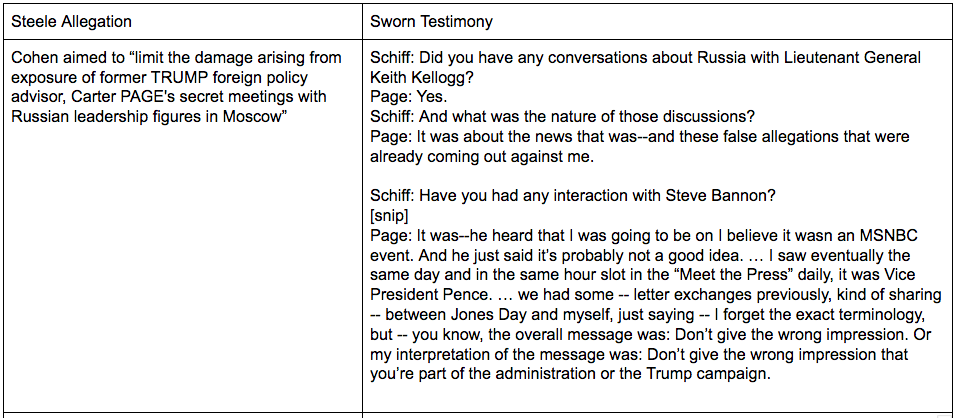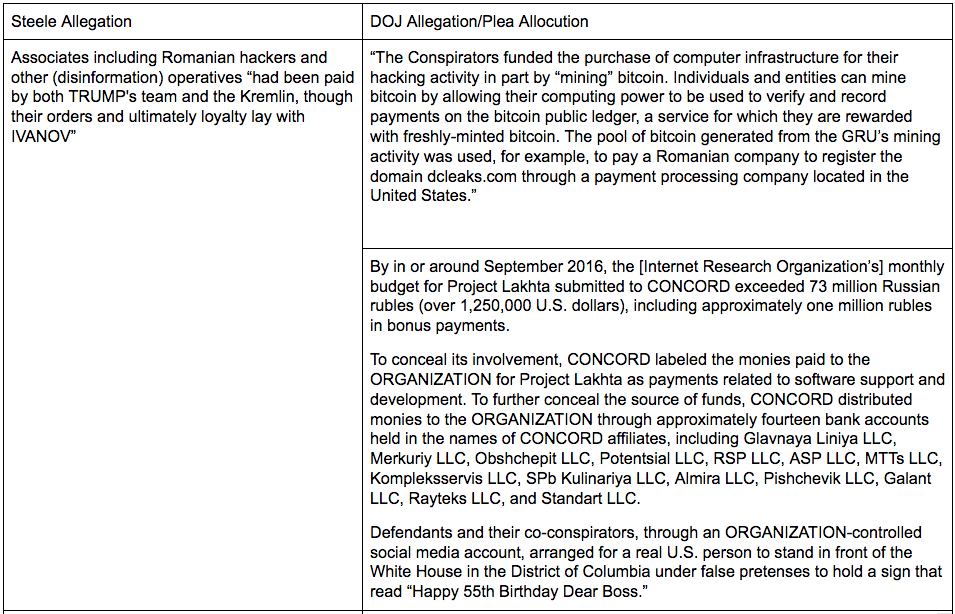Why Trump Believed He Could Withhold the June 9 Email: Because He Succeeded in Withholding Moscow Trump Tower Ones
In this post, I showed that I was correct when I wrote, back in January, that the Trump Organization did not turn over all the documents requested in the House Intelligence Committee subpoena to Michael Cohen. Trump Organization withheld — from HPSCI and from Cohen — the email that shows Dmitry Peskov’s office did respond to Cohen’s request for help (as well as emails showing that he kept trying to reach Peskov’s office).
On January 20, 2016, Cohen received an email from Elena Poliakova, Peskov’s personal assistant. Writing from her personal email account, Poliakova stated that she had been trying to reach Cohen and asked that he call her on the personal number that she provided.350 Shortly after receiving Poliakova’s email, Cohen called and spoke to her for 20 minutes.
I also showed that Trump’s sworn response to a Mueller question about all this replicates the lies that Cohen told in his false statement to Congress.
I had few conversations with Mr. Cohen on this subject. As I recall, they were brief, and they were not memorable. I was not enthused about the proposal, and I do not recall any discussion of travel to Russia in connection with it. I do not remember discussing it with anyone else at the Trump Organization, although it is possible. I do not recall being aware at the time of any communications between Mr. Cohen or Felix Sater and any Russian government official regarding the Letter of Intent. In the course of preparing to respond to your questions, I have become aware that Mr. Cohen sent an email regarding the Letter of Intent to “Mr. Peskov” at a general, public email account, which should show there was no meaningful relationship with people in power in Russia. I understand those documents already have been provided to you.
[snip]
With that in mind, consider the substance of that middle paragraph. It repeats the key lies that Cohen pled guilty to in December:
- Trump and Cohen only have a few (three) conversations about the deal rather than ten or more
- Trump did not know of any travel plans to Russia
- Trump didn’t discuss the project with anyone else at Trump Org, including Ivanka and Don Jr
- Cohen’s attempt to contact Dmitry Peskov in January 2016 was via a public email address and proved unsuccessful
Compare those lies with the three main lies Cohen pled guilty to.
- The Moscow Project ended in January 201 6 and was not discussed extensively with others in the Company.
- COHEN never agreed to travel to Russia in connection with the Moscow Project and “never considered” asking Individual 1 to travel for the project.
- COHEN did not recall any Russian government response or contact about the Moscow Project.
Not knowing (or caring) that his former fixer was already cooperating with Mueller, Trump repeated precisely the same lies Cohen is now in prison for, did so under oath, and refused to fix those responses when given an opportunity to.
All that’s important background for something explained in the Mueller Report: that it was Trump — not Hope Hicks (as Mark Corallo feared) — who planned to withhold the thread of emails setting up the June 9 meeting to hide that Don Jr had accepted dirt from the Russian government. In the weeks before the NYT learned of the emails, Trump repeatedly tried to insulate himself from being shown the emails and said that “just one lawyer should deal with the matter” to prevent them from leaking.
According to Hicks, Kushner said that he wanted to fill the President in on something that had been discovered in the documents he was to provide to the congressional committees involving a meeting with him, Manafort, and Trump Jr.678 Kushner brought a folder of documents to the meeting and tried to show them to the President, but the President stopped Kushner and said he did not want to know about it, shutting the conversation down.679
On June 28, 2017, Hicks viewed the emails at Kushner’s attorney’s office.680 She recalled being shocked by the emails because they looked “really bad.”681 The next day, Hicks spoke privately with the President to mention her concern about the emails, which she understood were soon going to be shared with Congress.682 The President seemed upset because too many people knew about the emails and he told Hicks that just one lawyer should deal with the matter.683 The President indicated that he did not think the emails would leak, but said they would leak if everyone had access to them.684
Later that day, Hicks, Kushner, and Ivanka Trump went together to talk to the President.685 Hicks recalled that Kushner told the President the June 9 meeting was not a big deal and was about Russian adoption, but that emails existed setting up the meeting.686 Hicks said she wanted to get in front of the story and have Trump Jr. release the emails as part of an interview with “softball questions.”687 The President said he did not want to know about it and they should not go to the press.688 Hicks warned the President that the emails were “really bad” and the story would be “massive” when it broke, but the President was insistent that he did not want to talk about it and said he did not want details.689 Hicks recalled that the President asked Kushner when his document production was due. 690 Kushner responded that it would be a couple of weeks and the President said, “then leave it alone.”691 Hicks also recalled that the President said Kushner’s attorney should give the emails to whomever he needed to give them to, but the President did not think they would be leaked to the press.692 Raffel later heard from Hicks that the President had directed the group not to be proactive in disclosing the emails because the President believed they would not leak.693
When the NYT reached out to the White House for the story, Trump uncharacteristically told Hicks not to comment for the story.
On July 7, 2017, while the President was overseas, Hicks and Raffel learned that the New York Times was working on a story about the June 9 meeting.695 The next day, Hicks told the President about the story and he directed her not to comment.696 Hicks thought the President’s reaction was odd because he usually considered not responding to the press to be the ultimate sin.697
Then, when Trump, who was with Hicks, was chewing Mark Corallo out for the counter-statement he released, Hicks, “channel[ed] the President” by saying that the email would never get out.
The next day, July 9, 2017, Hicks and the President called Corallo together and the President criticized Corallo for the statement he had released.721 Corallo told the President the statement had been authorized and further observed that Trump Jr. ‘s statement was inaccurate and that a document existed that would contradict it.722 Corallo said that he purposely used the term “document” to refer to the emails setting up the June 9 meeting because he did not know what the President knew about the emails.723 Corallo recalled that when he referred to the “document” on the call with the President, Hicks responded that only a few people had access to it and said “it will never get out.”724 Corallo took contemporaneous notes of the call that say: “Also mention existence of doc. Hope says ‘ only a few people have it. It will never get out.”‘725 Hicks later told investigators that she had no memory of making that comment and had always believed the emails would eventually be leaked, but she might have been channeling the President on the phone call because it was clear to her throughout her conversations with the President that he did not think the emails would leak.726
In the period when the Joint Defense Agreement was trying to respond to Congressional requests for documents on Trump’s ties to Russia, the President’s response was to argue that “just one lawyer should deal with the matter” to ensure that the emails did not get out.
That lawyer is Alan Garten.
We know that because in Cohen’s March 6 testimony to the House Intelligence Committee, he described that Alan Garten and Alan Futerfas were in charge of document collection for the Trump Organization.
THE CHAIRMAN: A number of those emails were never turned over to our committee in the document production. Do you know who was responsible for the document production and who would have withheld those documents from this committee?
MR. COHEN: Alan Futerfas and Alan Garten.
More specifically, Cohen’s February 28 testimony to the House Intelligence Committee, he described a meeting he had with Garten on document production. He was telling the story to explain that at the meeting, Garten told Cohen enough for him to figure out that Trump was the one who drafted the false statement on the June 9 meeting.
THE CHAIRMAN: You mentioned a meeting also with Alan Garten?
MR. COHEN: Yes, sir.
THE CHAIRMAN: And can you tell us who that is?
MR. COHEN: Alan Garten is now general counsel at The Trump Organization, And prior to that, he was assistant general counsel.
THE CHAIRMAN: You referenced that in the context of this also raised your suspicion of collusion. What in particular were you referring to?
MR. COHEN: My conversation with Alan Garten was in regard to, I believe, this committee’s subpoena where they wanted all of my contacts from the Trump Org server. And in order to limit the amount, because there were about 10,000, he brought to me a stack of pages and wanted me to go through each one of those email addresses to the best of my ability to mark off which ones were family, which ones were friends, which ones related to Trump Org business, which ones were just solicitations, Google alerts, et cetera. We started to engage in conversation, because at the time the news cycle was all over the allegation that the conversation going back and forth was about adoption. And I said, well, what’s going on? Tell me what happened. So he told me that he was with Don Jr. and that they were communicating back and forth with Air Force One. And he goes, you know how it gets, back and forth and back and forth. He goes, it was such a process. That was the conversation with Alan Garten.
THE CHAIRMAN: And tell me what raised your suspicion about that conversation.
MR. COHEN: lt was about how to describe the meeting, the Trump Tower meeting, as to whether it was about obtaining dirt on Hillary Clinton or it was about adoption. And what he expressed to me is that, you know, Mr. Trump drafted the first round, and it came to Don and him, and then they sent it back, and back and forth.
THE CHAIRMAN: So what he described to you was Mr. Trump’s participation in the creation of a false statement about what took place in that meeting?
MR. COHEN: Yes, that’s how he described it. Well, that’s how I understood it.
But the point of the meeting was to begin the document response process from Trump Organization that resulted in the most damning emails — emails that would prove false the story Cohen and the Trump family lawyers planned to tell about the Trump Tower Moscow deal — being withheld.
In the March 6 one, Adam Schiff got Cohen to repeat that the reason he and Garten were having this conversation in the first place is because Garten was pulling documents to reply to Congressional requests.
Q Well, let me ask it a different way. What was the purpose of him showing you your contacts and other documents?
A The Trump Organization received a subpoena in order to turn over documents, and since I had no documents, everything being in their custody and control, they wanted the contacts to be limited to, I suspect, non-business-related, you know, removal, family removal emails that are not pertaining to the investigation.
Q So the purpose of the meeting was to discuss a document production that The Trump Organization needed to provide?
A Correct.
Q And was it to provide to this committee?
A I don’t know which committee, but I suspect it was all the committees.
Q All right. And do you recall that the false statement that Don Jr. issued about the Trump Tower meeting that was discussed on Air Force One, do you recall that happened in approximately June of 2017?
A I believe so.
Garten was with Don Jr in person as they worked back and forth with Hope Hicks and Donald Trump on Air Force One to draft the June 9 meeting that Trump wanted to lie about by making sure the email didn’t leak.
There were no lawyers on Air Force One. This is the conversation that, in his appearances before Congress, Don Jr successfully avoided discussing because he was with his lawyer. But no privilege should have attached to that conversation because Garten did not represent Trump personally (Trump was supposed to be walled off from Trump Organization matters), much less Hope Hicks.
In June 2017, when Donald Trump was trying to sustain a false story about the June 9 meeting by suggesting that if just one lawyer dealt with the matter, the email disproving that story would not be “leaked,” Alan Garten was ensuring that the email disproving Michael Cohen’s false story did not get turned over to Congress.
That’s why Trump thought he’d get away with the lie. Because he almost got away with it on the Trump Tower Moscow story.
As I disclosed last July, I provided information to the FBI on issues related to the Mueller investigation, so I’m going to include disclosure statements on Mueller investigation posts from here on out. I will include the disclosure whether or not the stuff I shared with the FBI pertains to the subject of the post.



